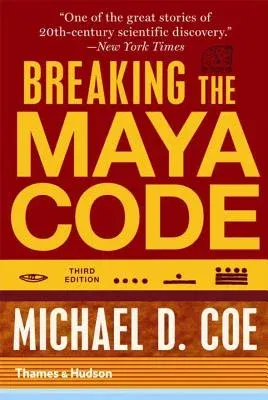Michael D Coe
(Author)Breaking the Maya Code (Revised, Updated)Paperback - Revised, Updated, 27 February 2012

Qty
1
Turbo
Ships in 2 - 3 days
Only 1 left
Free Delivery
Cash on Delivery
15 Days
Free Returns
Secure Checkout

Print Length
304 pages
Language
English
Publisher
Thames & Hudson
Date Published
27 Feb 2012
ISBN-10
0500289557
ISBN-13
9780500289556
Description
Product Details
Author:
Book Edition:
Revised, Updated
Book Format:
Paperback
Country of Origin:
CN
Date Published:
27 February 2012
Dimensions:
23.27 x
15.67 x
2.24 cm
ISBN-10:
0500289557
ISBN-13:
9780500289556
Language:
English
Pages:
304
Publisher:
Weight:
689.46 gm